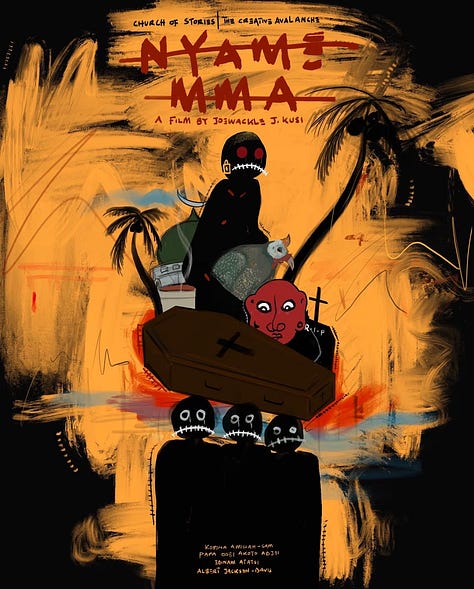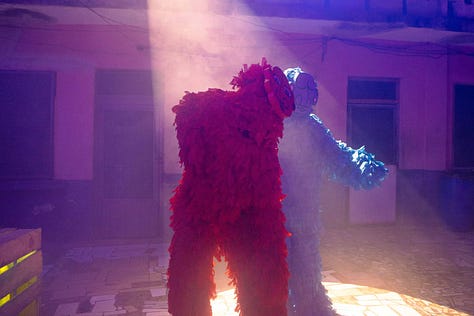Joewackle Kusi’s "Nyame Mma" Takes us on a Journey Through Love, Loss, and Legacy [#TAFM24]
Sadly, this ambitious narrative struggles to fully find its rhythm.
Nyame Mma (translated as Children of God) is a short film, about 30 minutes long, written and directed by Joewackle Kusi. It was screened at the Annual Film Mischief 2024.
Nyame Mma follows Kwamena (played by Kobina Amissah-Sam), a young man who must return to his hometown of Sekondi after his father passes away. Having lived in Bolgatanga, a town in northern Ghana, for some time, Kwamena finds himself back home to comfort his grieving mother and help plan his father's funeral. What begins as a simple return to one’s roots slowly reveals a deeper story, unpacking the many reasons Kwamena left home in the first place.
The tension between Kwamena, his late father, and his living mother is palpable. The film taps into the familiar struggle of millennials attempting to make sense of their place in an unyielding world while grappling with the weight of their pasts. From the onset, the filmmaker, Joewackle Kusi's choice of blocking and framing, feels intimate, and as the story unfolds, it becomes clear why. Kwamena carries a lot of emotional baggage, and the film doesn't shy away from exploring that.
Nothing about Nyame Mma is subtle. As soon as the reason for Kwamena's return is established, we dive headfirst into his unresolved issues, including his lingering feelings for an ex-lover, Maroof (played by Papa Osei A. Adjei). It’s clear that Kwamena’s heart still yearns for Maroof, and the film makes this tension a focal point. However, Nyame Mma struggles with how it handles this revelation, often taking a heavy-handed approach that feels a bit didactic.
While tension is essential to storytelling, there’s something about how Nyame Mma builds and releases it that feels lacking in grace. The backstory between Kwamena and Maroof is laid out too plainly, almost spoon-feeding the audience rather than allowing us to engage more thoughtfully with the revelation. A prime example is a scene where Maroof is with his bride-to-be, and Kwamena watches from a close distance, clearly in pain, before walking away. While this makes sense thematically, it feels out of place narratively. The film tries to use this to ensure we understand the depth of their forbidden love, but it might have been more effective to let the audience discover this tension more organically.
On the technical side, the film’s sound design leaves a little more to be desired. There are moments when the sound is overly dramatic and distracting. The heartbeat thumping and wailing at the funeral, for instance, feel out of sync with the rest of the film’s tone, as if they were pulled straight from a page of Dante's Inferno. A quieter, more subtle approach would have allowed the emotional weight of the story to land more effectively.
Despite these shortcomings, I can see what Joewackle Kusi was aiming for, and I applaud the effort. The film's ambition is evident, even if it stumbles in execution. With more attention to the nuances of his characters and a tighter narrative, I believe Kusi could have created something more powerful. The room for grace this film gave me, I now give back to the filmmaker. Here's hoping that his next project stays grounded in a way that allows the story to flourish naturally, without overwhelming the viewer.







